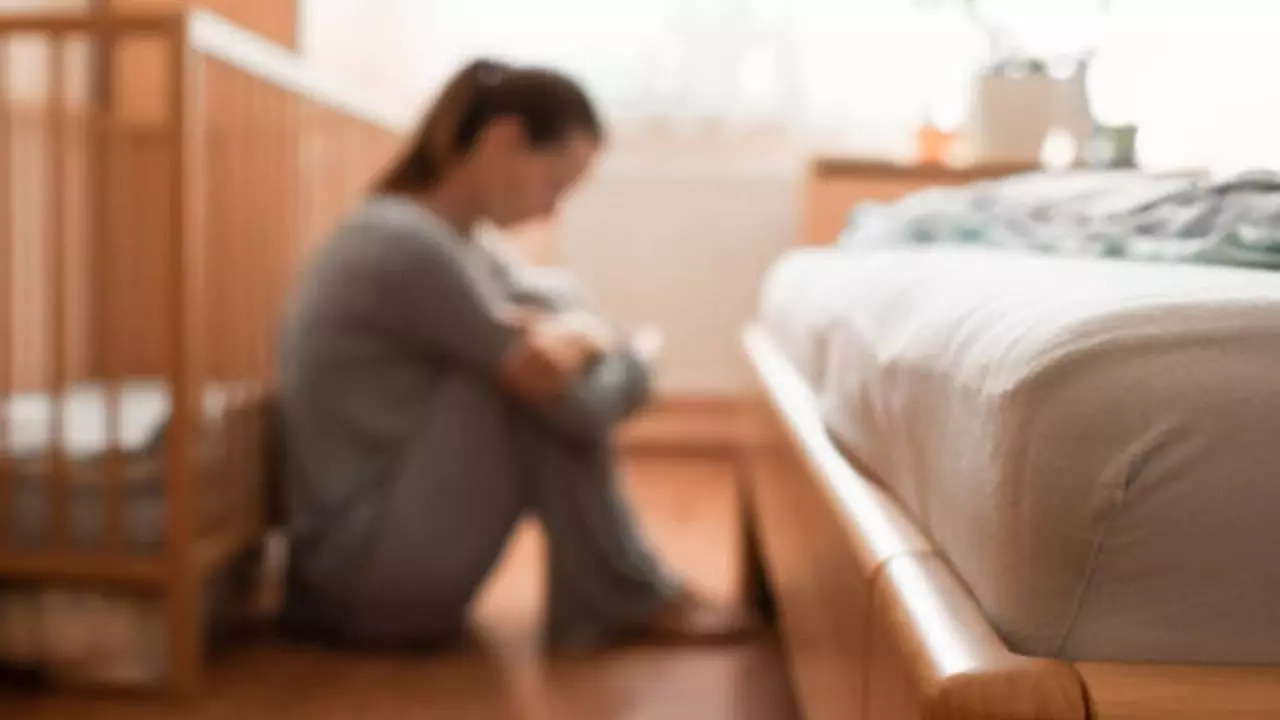Contents
-
news
-
Health
Study states that one in eight new mothers in the US suffers from postpartum depression; What is the reason for this
A new study from the Centers for Disease Control and Prevention says one in eight new mothers in the US suffers from postpartum depression. The CDC says three-quarters of American women are not diagnosed or treated for a mental health condition that affects new moms during the first year after giving birth. Read on to know what it is.

The CDC says the stigma associated with the condition, which makes you believe you’re happy just having a baby when you’re actually not, makes it difficult for women to talk openly about their feelings.
A new study from the Centers for Disease Control and Prevention says at least 1 in 8 new mothers in the United States suffers from postpartum depression. According to the health body, a large proportion of women who have given birth face this mental health challenge – which is a serious mental health condition that affects women during the first year after giving birth.
Women who go through this condition usually have intense feelings of sadness, worry, anxiety and extreme fatigue that last for a long time and make it difficult for them to take care of themselves and the baby. According to experts, PPD often starts within one to three weeks of childbirth and requires proper treatment to get better.
The CDC says three-quarters of American women are not diagnosed or treated.
Why are more American women experiencing PPD?,
According to the CDC, the stigma associated with the condition, which makes you believe that you are happy just having a baby when in fact you are not, makes it difficult for women to talk openly about their feelings.
Doctors say most insurance policies don’t even come close to meeting the demand for mothers who need mental support.
What causes postpartum depression,
Although the exact reasons why postpartum depression occurs are not known, doctors say that some of the factors that contribute to the development of this condition include:
hormonal changes
Due to the rapid drop in estrogen and progesterone levels immediately after giving birth, postpartum depression may begin. There may also be a drastic drop in thyroid hormone levels – which can lead to symptoms of depression.
physical changes
Giving birth to a child brings about many changes in a woman’s body, including the physical demands of childbirth.
genetics
Women who have a family history of postpartum depression have an increased risk of experiencing it.
Signs and symptoms of postpartum depression
Many women suffer from this condition as its symptoms last weeks or months, some of which include:
- cry mantra
- feeling overwhelmed
- lose your appetite
- having trouble sleeping or staying asleep all the time
- sudden mood change
- changes in appetite or not eating
- loss of energy and motivation
- suicidal thoughts or wishing you were dead
- Lack of interest in your child or feeling anxious around your child
- Are you having thoughts of hurting your child or feeling like you don’t want your child?
How is PPD treated?
According to experts, PPD is treated differently depending on the type and severity of your symptoms — with options including anti-anxiety or antidepressant medications, psychotherapy, and support group participation.
Treatment of postpartum psychosis may include medications to treat depression, anxiety, and psychosis. You may also be admitted to a treatment center for several days until you are stable.
Get the latest news live on Times Now with breaking news and top headlines from around the world.


